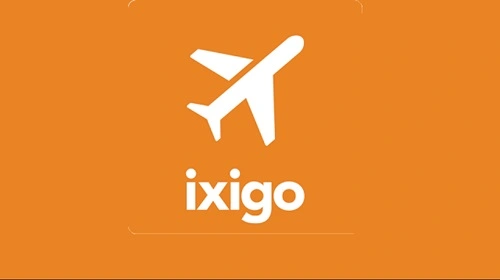Founded in 2007 by Aloke Bajpai and Rajnish Kumar, ixigo is one of India’s leading travel technology platforms. Originally launched as a travel search engine, ixigo has grown into a comprehensive travel and ticket booking platform catering to flights, trains, buses, and hotel bookings. With its user-friendly app, affordable pricing, and AI-driven recommendations, ixigo has become a popular choice for travelers, especially in Tier 2 and Tier 3 cities. This article explores ixigo’s business model and delves into how it generates revenue.
1. Overview of ixigo’s Business Model

ixigo operates on a B2C (Business-to-Consumer) and B2B2C (Business-to-Business-to-Consumer) model. It serves as a marketplace, aggregating travel services from airlines, train services (IRCTC), bus operators, and hotels. The company focuses on providing affordable travel options to consumers while earning revenue through commissions and advertising.
Key elements of ixigo’s business model include:
- Travel Aggregation: A platform to compare and book flights, trains, buses, and hotels.
- Ticketing Services: Direct booking for train and bus tickets, integrated with payment options.
- AI-Driven Insights: Personalized recommendations, fare predictions, and travel insights.
- Freemium Model: Offering free services to users while monetizing through affiliate commissions and premium offerings.
With its data-driven approach and focus on affordability, ixigo primarily targets budget-conscious travelers.
2. Revenue Streams
ixigo generates revenue from multiple sources, leveraging its wide range of services and extensive user base. Below are its primary revenue streams:
a) Commissions on Bookings
ixigo earns commissions from travel partners for bookings made through its platform. These commissions vary depending on the type of service:
- Flight Bookings:
- ixigo partners with airlines and online travel agencies (OTAs) to facilitate flight bookings.
- The platform earns a commission on every ticket sold, ranging from 2% to 5% of the ticket value.
- Train Bookings:
- As an authorized IRCTC partner, ixigo earns a commission for every train ticket booked via its app.
- This includes convenience fees and additional charges for value-added services like seat preferences.
- Bus Bookings:
- ixigo collaborates with bus operators and aggregators like RedBus and AbhiBus.
- A fixed commission per ticket or a percentage of the ticket price is earned.
- Hotel Bookings:
- Partnering with platforms like Booking.com, Agoda, and independent hotels, ixigo earns affiliate commissions for bookings routed through its platform.
b) Advertising Revenue
ixigo monetizes its large user base by offering advertising opportunities to travel brands, hotels, and other businesses.
- Sponsored Listings:
- Hotels, airlines, and travel partners can pay for higher visibility on ixigo’s platform.
- Sponsored listings appear at the top of search results, ensuring more clicks and bookings.
- Banner Ads:
- Brands advertise on ixigo’s app and website to reach travelers.
- Revenue is generated on a cost-per-click (CPC) or cost-per-impression (CPM) basis.
c) Freemium Model and In-App Purchases
While ixigo’s core services are free, the platform offers premium features for additional fees:
- ixigo Assured:
- A premium feature offering benefits like free cancellations and priority support.
- Revenue is generated through subscription or one-time charges.
- Fare Predictions and Alerts:
- Users can pay for premium insights into fare trends and price drop alerts for flights or trains.
d) Data Monetization
ixigo collects vast amounts of user data, including travel preferences, booking patterns, and price sensitivity. This data is anonymized and used to:
- Provide insights to travel partners and advertisers for better targeting.
- Improve AI algorithms for fare predictions and travel recommendations.
Revenue Model:
- ixigo earns fees from partners for data-driven reports and analytics services.
e) Affiliate Marketing
ixigo earns affiliate commissions by redirecting users to third-party platforms for services it doesn’t directly provide, such as car rentals, holiday packages, or niche hotel bookings.
Revenue Model:
- A share of the transaction value from affiliate partners like MakeMyTrip, Agoda, or Booking.com.
f) Ancillary Services
ixigo generates revenue by offering ancillary services, including:
- Travel insurance (through partnerships with insurance providers).
- Visa assistance for international travelers.
- Additional services like baggage protection or seat selection.
Revenue Model:
- Commissions from service providers for upselling these add-ons.
3. Cost Structure
Operating a travel platform like ixigo involves significant costs:
a) Technology and Platform Maintenance
- Expenses related to app development, AI implementation, and server management.
- Investment in machine learning for fare predictions and personalized recommendations.
b) Customer Acquisition
- Marketing and promotional campaigns to attract users, including cashback offers and discounts.
- Partnerships with banks and payment platforms to offer co-branded promotions.
c) Commissions to Affiliates
- Sharing a portion of the revenue with affiliate partners and travel service providers.
d) Employee Costs
- Salaries for engineers, data scientists, customer support teams, and marketing professionals.
e) Licensing Fees
- Payments to regulatory bodies like IRCTC for train ticket booking partnerships.
4. Unique Features Driving Revenue Growth
ixigo employs several innovative strategies to sustain growth and maximize revenue:
a) AI-Driven Recommendations
ixigo uses AI and machine learning to offer personalized recommendations, fare predictions, and dynamic pricing insights, enhancing user engagement and driving conversions.
b) Focus on Tier 2 and Tier 3 Markets
By targeting smaller cities and rural areas, ixigo has tapped into an underserved segment of budget travelers, capturing significant market share.
c) Affordability
With features like no-cost EMI and low booking fees, ixigo appeals to price-sensitive users.
d) Seamless Multimodal Travel
By integrating flights, trains, buses, and hotels into a single platform, ixigo provides a comprehensive travel solution for its users.
e) Offline Access
Features like offline PNR updates and alerts cater to users with limited internet access, enhancing usability in rural areas.
5. Challenges and Opportunities
Challenges
- Intense Competition: Competing with giants like MakeMyTrip, Yatra, and Cleartrip in the travel booking space.
- Low Margins: Operating in a price-sensitive market limits profit margins.
- Regulatory Hurdles: Complying with IRCTC and aviation rules for ticketing services.
Opportunities
- International Expansion: Offering travel services for outbound Indian travelers and global markets.
- Travel Subscriptions: Launching travel-specific subscription plans for frequent users.
- Corporate Travel: Catering to business travelers with exclusive tools and partnerships.
- Sustainable Tourism: Promoting eco-friendly travel options to attract environmentally conscious users.
6. Financial Overview
ixigo has grown significantly in terms of revenue and user base, especially after acquiring Confirmtkt and AbhiBus to strengthen its train and bus ticketing segments. The company’s ability to monetize its vast user base through multiple revenue streams positions it as a key player in India’s travel-tech industry.
Conclusion
ixigo’s business model demonstrates its strength as a versatile and innovative travel platform. By integrating advanced technology, a customer-centric approach, and strategic partnerships, ixigo has successfully captured the Indian travel market. With a focus on affordability, user engagement, and expansion into underserved markets, ixigo is well-positioned to sustain its growth and remain a leader in the travel-tech ecosystem.

